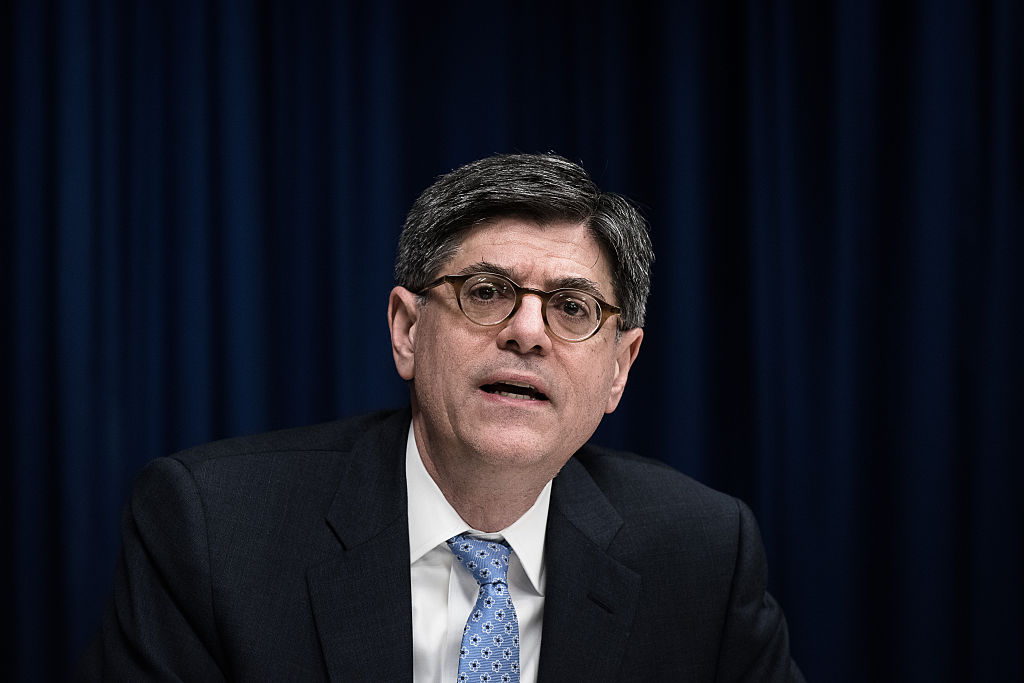U.S. Treasury moves aggressively to curb corporate tax inversions


A free daily email with the biggest news stories of the day – and the best features from TheWeek.com
You are now subscribed
Your newsletter sign-up was successful
Late Monday, the U.S. Treasury Department and Internal Revenue Service announced new rules to quash corporate inversions, where an American company buys a foreign rival then moves the company's address abroad to sharply lower their U.S. taxes. It is the third set of Treasury rules aimed at corporate inversions, but this pair of changes — affecting a tax maneuver called earnings stripping and also serial inverters — is seen as the most effective yet. "It's going to be a major impediment. They're pretty much taking all of the juice out of inversions," tax analyst Robert Willens tells The Wall Street Journal. "They've addressed literally every benefit that one attempted to gain from an inversion and shut them all down systematically."
The rules apply to all deals that close after Monday, and the first victim could be the largest proposed corporate inversion yet, Pfizer's $160 billion takeover of Dublin-domiciled rival Allergan. Allergan's shares fell 21 percent in after-hours trading. That merger has become an object of criticism on the presidential campaign trail, a rare area of agreement between Hillary Clinton and Donald Trump.
The rash of corporate inversions in recent years has vexed the Treasury Department, and Congress has not acted on the Obama administration's requests to curb the tax maneuvers through legislation. The new rules will only "slow the pace of these transactions," Treasury Secretary Jack Lew acknowledged, but said any action is worthwhile. "After an inversion, many of these companies continue to take advantage of the benefits of being based in the United States — including our rule of law, skilled workforce, infrastructure, and research and development capabilities — all while shifting a greater tax burden to other businesses and American families."
The Week
Escape your echo chamber. Get the facts behind the news, plus analysis from multiple perspectives.

Sign up for The Week's Free Newsletters
From our morning news briefing to a weekly Good News Newsletter, get the best of The Week delivered directly to your inbox.
From our morning news briefing to a weekly Good News Newsletter, get the best of The Week delivered directly to your inbox.
House Ways and Means Committee Chairman Kevin Brady (R-Texas) did not seem eager to strengthen Lew's hand with new regulation, calling the new rules "punitive" measures that will hurt U.S. companies and tamp down investment.
A free daily email with the biggest news stories of the day – and the best features from TheWeek.com
Peter has worked as a news and culture writer and editor at The Week since the site's launch in 2008. He covers politics, world affairs, religion and cultural currents. His journalism career began as a copy editor at a financial newswire and has included editorial positions at The New York Times Magazine, Facts on File, and Oregon State University.
-
 Political cartoons for February 16
Political cartoons for February 16Cartoons Monday’s political cartoons include President's Day, a valentine from the Epstein files, and more
-
 Regent Hong Kong: a tranquil haven with a prime waterfront spot
Regent Hong Kong: a tranquil haven with a prime waterfront spotThe Week Recommends The trendy hotel recently underwent an extensive two-year revamp
-
 The problem with diagnosing profound autism
The problem with diagnosing profound autismThe Explainer Experts are reconsidering the idea of autism as a spectrum, which could impact diagnoses and policy making for the condition
-
 TikTok secures deal to remain in US
TikTok secures deal to remain in USSpeed Read ByteDance will form a US version of the popular video-sharing platform
-
 Unemployment rate ticks up amid fall job losses
Unemployment rate ticks up amid fall job lossesSpeed Read Data released by the Commerce Department indicates ‘one of the weakest American labor markets in years’
-
 US mints final penny after 232-year run
US mints final penny after 232-year runSpeed Read Production of the one-cent coin has ended
-
 Warner Bros. explores sale amid Paramount bids
Warner Bros. explores sale amid Paramount bidsSpeed Read The media giant, home to HBO and DC Studios, has received interest from multiple buying parties
-
 Gold tops $4K per ounce, signaling financial unease
Gold tops $4K per ounce, signaling financial uneaseSpeed Read Investors are worried about President Donald Trump’s trade war
-
 Electronic Arts to go private in record $55B deal
Electronic Arts to go private in record $55B dealspeed read The video game giant is behind ‘The Sims’ and ‘Madden NFL’
-
 New York court tosses Trump's $500M fraud fine
New York court tosses Trump's $500M fraud fineSpeed Read A divided appeals court threw out a hefty penalty against President Trump for fraudulently inflating his wealth
-
 Trump said to seek government stake in Intel
Trump said to seek government stake in IntelSpeed Read The president and Intel CEO Lip-Bu Tan reportedly discussed the proposal at a recent meeting
